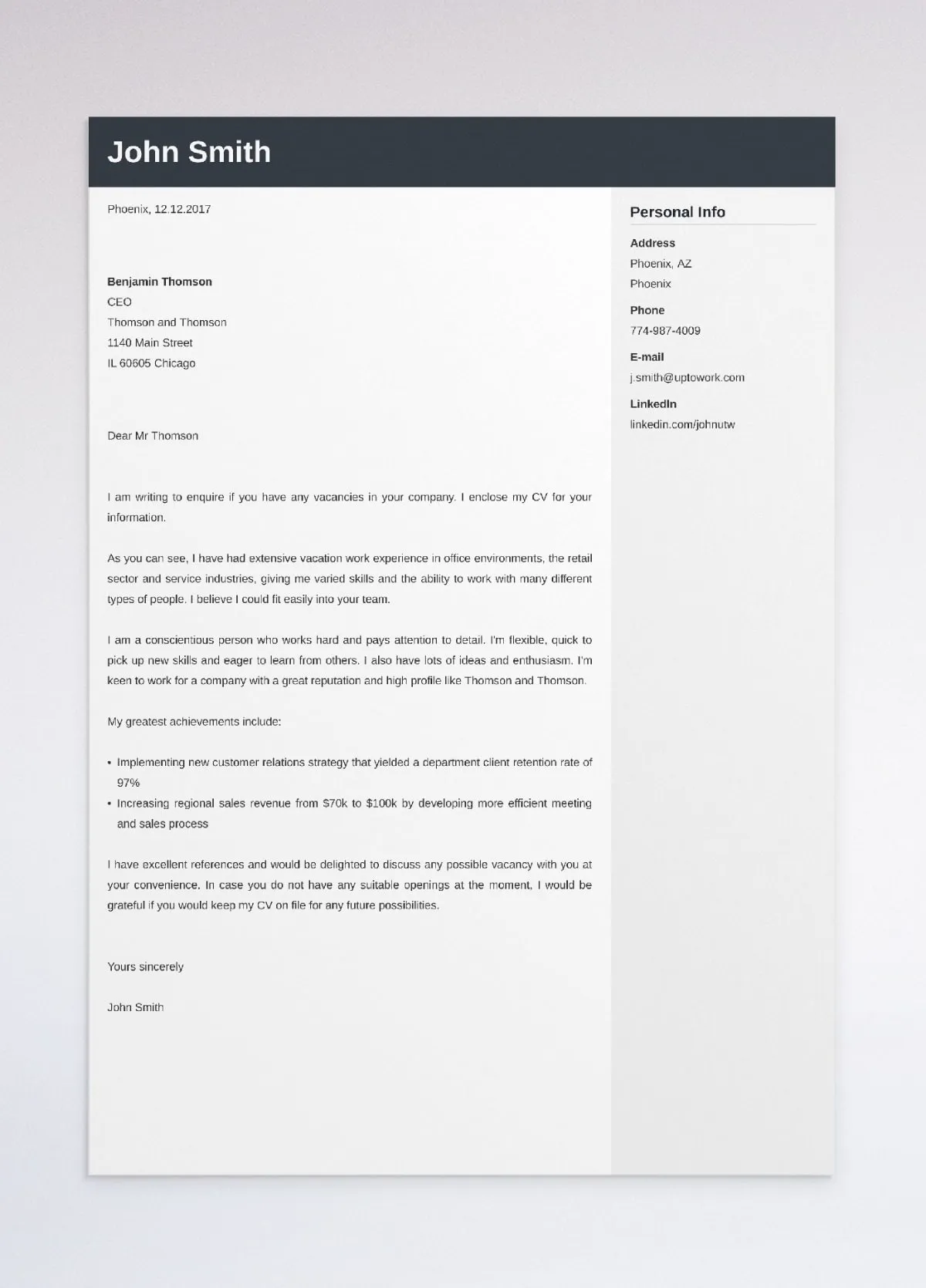Cover Letter or Not? Understanding the Basics
The question of whether to include a cover letter is one that many job seekers grapple with. It’s a crucial decision that can significantly impact your application’s success. At its core, the cover letter serves as an introduction to your resume, offering a personalized snapshot of your qualifications and aspirations. However, its necessity isn’t always straightforward. The ‘cover letter or not’ dilemma is a nuanced one, influenced by various factors such as industry standards, company culture, and the specific job requirements. Before deciding, it’s essential to understand the fundamental role a cover letter plays and when it can provide the most value in your job search strategy.
The Purpose of a Cover Letter
A well-crafted cover letter is more than just a formality; it’s your opportunity to make a compelling first impression. Its primary purpose is to introduce you to the hiring manager and to highlight why you’re the ideal candidate for the role. Unlike your resume, which lists your skills and experience, the cover letter allows you to tell a story—to explain your interest in the company, how your skills align with their needs, and what unique value you bring. This is where you can showcase your personality, enthusiasm, and genuine interest in the position. It also provides context, elaborating on your qualifications and demonstrating how you meet the specific requirements outlined in the job description. A compelling cover letter can set you apart from other applicants, making your application more memorable and increasing your chances of landing an interview. Therefore, before deciding ‘cover letter or not’, understanding its purpose is critical.
When a Cover Letter is Essential
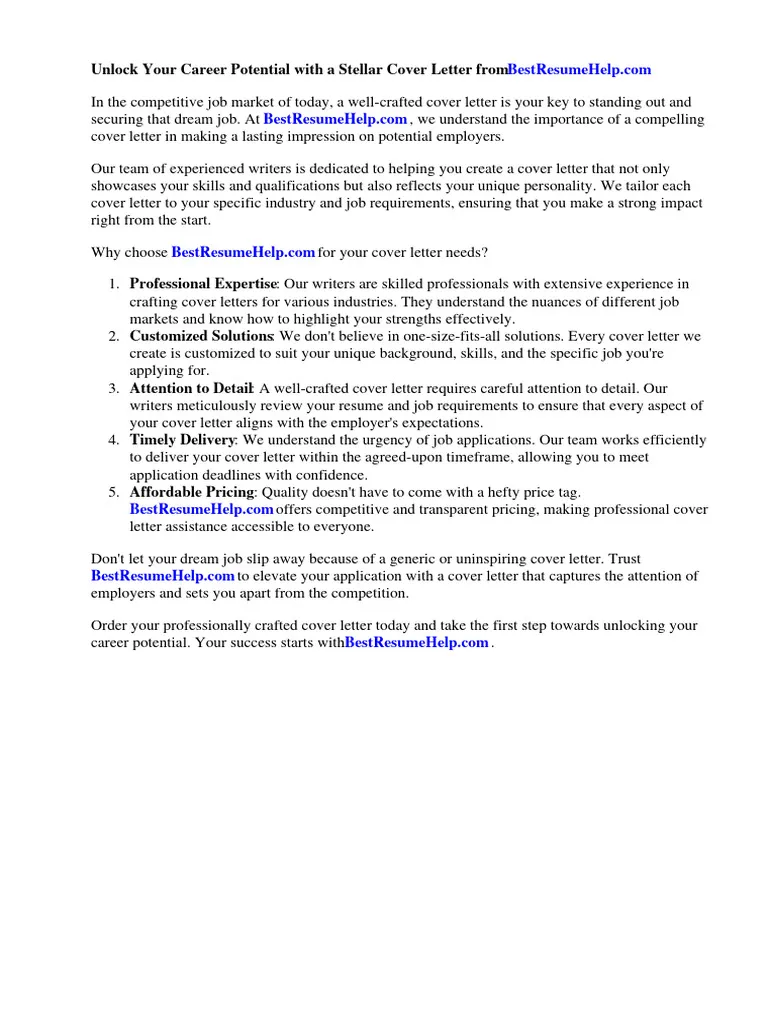
There are certain scenarios where a cover letter is almost always necessary. When the job posting explicitly requests a cover letter, it’s non-negotiable. Ignoring this instruction may lead to immediate rejection. In roles that require a high degree of communication or writing skills, such as marketing, communications, or content creation, a cover letter becomes a showcase of your abilities. It demonstrates your ability to articulate your thoughts clearly and concisely. Furthermore, if you’re applying for a position where you’re making a significant career change or your resume doesn’t directly reflect the job requirements, a cover letter provides the space to explain your transition and highlight relevant transferable skills. Similarly, if there are gaps in your employment history or unique circumstances that need explaining, the cover letter allows you to address these proactively. Lastly, in highly competitive fields, where every edge matters, a cover letter can be that differentiating factor. The decision of ‘cover letter or not’ often hinges on these critical factors.
Highlighting Relevant Skills and Experience
A cover letter should not merely repeat what’s already in your resume. Instead, it should elaborate on specific skills and experiences that are most relevant to the job. Select a few key accomplishments or skills that directly align with the job description’s requirements. Provide concrete examples that demonstrate how you’ve applied those skills to achieve positive outcomes. For instance, if the job requires project management skills, describe a project you led, the challenges you faced, and the results you achieved. Quantify your achievements whenever possible to show the impact you made. This is also the place to explain how your skills have grown with you over time. By providing compelling evidence of your abilities, you can create a strong case for why you’re the ideal candidate.
Why a Cover Letter Can Make a Difference
In a sea of applicants, a well-written cover letter can be the difference between getting an interview and getting overlooked. It allows you to express your personality and enthusiasm, qualities that don’t always shine through in a resume. A cover letter is your chance to show that you’ve done your homework—that you understand the company’s mission, values, and current challenges. Demonstrating this level of insight can signal a genuine interest in the role. Furthermore, it provides an opportunity to address any potential weaknesses or gaps in your application, such as career changes or employment gaps. By addressing these issues proactively, you can put the hiring manager at ease and increase your chances of being considered. The ‘cover letter or not’ decision should always take into account the advantage it offers in making a memorable impression.
Cover Letter or Not? Know the Company Culture
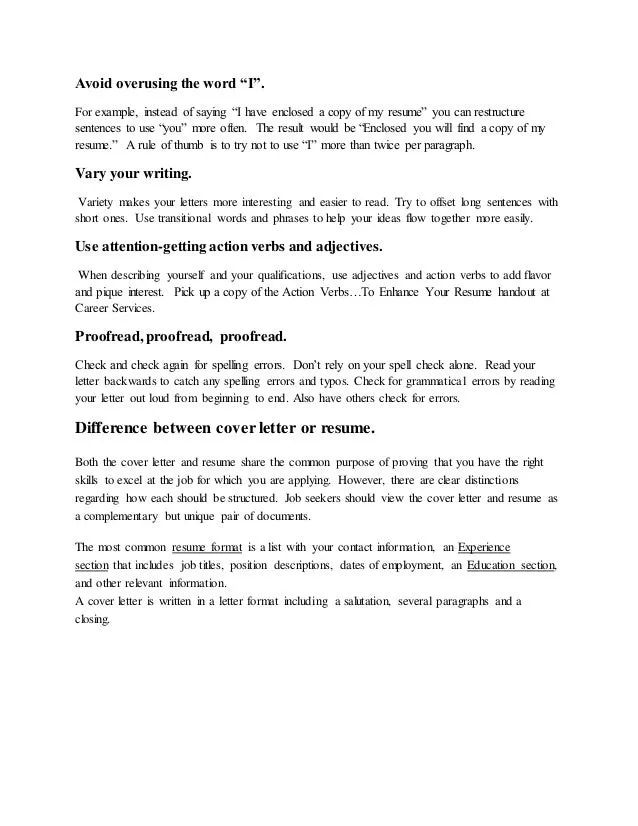
Company culture plays a significant role in determining whether a cover letter is needed. Some organizations value traditional formality, while others embrace a more casual approach. Researching the company’s culture will give you insight into their expectations. Look at the language used in their job postings and on their website. Observe how they communicate on social media platforms. If the company’s tone is formal, a cover letter is likely expected and should reflect this formality. If the company culture is more relaxed, your cover letter can be more personalized and less rigid. In some instances, particularly with tech startups or creative agencies, a cover letter might be replaced by a brief, engaging email that showcases your personality and writing style. Ultimately, your goal is to align your application with the company’s values and expectations.
Researching the Company’s Expectations
Before deciding on ‘cover letter or not’, thoroughly research the company. Visit their website, read their “About Us” section, and explore their social media profiles. Look for clues about their hiring practices. Do they have a career page? Do they provide any application guidelines? If the job posting specifies requirements, carefully follow those instructions. You can also research the company culture through sites like Glassdoor, where current and former employees often share insights. Pay attention to the company’s communication style, values, and overall atmosphere. Knowing this information can guide you on the tone and format of your cover letter. Additionally, networking through LinkedIn or other platforms can provide valuable inside information.
Tailoring Your Application
Never send a generic cover letter. Each cover letter should be tailored to the specific job and company you’re applying for. Customize your letter to highlight the skills and experiences that align with the job description. Address the hiring manager by name if possible, and show that you’ve done your research by mentioning specific projects or initiatives of the company. Use the cover letter to explain why you are a perfect fit, not just for the job but also for the company’s culture. Tailoring your application demonstrates genuine interest and effort. This is critical when making your ‘cover letter or not’ decision, as a generic cover letter can be worse than no letter at all. Showcasing your understanding of the company’s needs will make your application stand out.
Cover Letter or Not? Assessing Job Application Instructions

The most straightforward way to determine whether to include a cover letter is to review the job application instructions. Some postings explicitly request a cover letter, and failing to provide one can be an instant disqualifier. Others may state that a cover letter is optional, providing you with flexibility. Be sure to carefully read all the requirements before applying. Look for any specific instructions regarding format, content, or length. Sometimes, the application platform itself may dictate whether a cover letter is accepted or not. If the job posting doesn’t mention a cover letter, then you will want to assess your potential, whether you are going to be a good fit, and if you would benefit more from the cover letter.
Following Application Guidelines
Carefully follow all instructions provided in the job posting. If the posting asks for a cover letter, then submit a well-written one. If the instructions specify a certain format or length, adhere to those guidelines. Ignoring these instructions can make you look like you’re not detail-oriented, which is a crucial skill in many jobs. Some applications might require you to submit your cover letter within the body of an email, while others may request it as a separate attachment. Make sure you follow the correct submission method. If you have any questions about the application process, don’t hesitate to reach out to the hiring manager or the HR department. Prioritizing these details will increase your chances of success.
Avoiding Common Mistakes
Avoid common cover letter mistakes. Don’t use a generic template. Tailor your cover letter to each job, highlighting relevant skills and experiences. Don’t repeat your resume verbatim; instead, expand on your key accomplishments and explain how they match the job requirements. Be concise and keep your cover letter to one page. Proofread carefully for any grammatical errors or typos. Ensure your tone is professional and enthusiastic. Double-check your contact information. A poorly written cover letter can damage your application more than not submitting one at all. By avoiding these common pitfalls, you will greatly improve your chances of making a positive impression.
Cover Letter or Not? Considering Industry Standards

Industry standards play a significant role in your ‘cover letter or not’ decision. Certain industries have different expectations regarding cover letters. For example, in fields like academia, creative arts, and government positions, cover letters are often essential. In other industries, like technology and startups, the use of cover letters might be less prevalent, although it depends on the specific company and the role. Research the accepted practices within your target industry. Consult with career advisors or professionals in your field to gain insights into what is considered standard practice. The more you understand the norms, the better you will be able to shape your application.
Industry-Specific Norms
Researching industry-specific norms is crucial. If you’re applying for a role in a traditional field like law or finance, a cover letter is almost always expected. Conversely, in the tech industry, especially for software engineering or design roles, the focus is often on a portfolio or a strong resume, and a cover letter might be less critical. For creative roles, your cover letter may serve as a writing sample, therefore needing to be written to the best of your ability. However, this also depends on the company. Additionally, in certain sectors, such as academia, the cover letter is often seen as a critical document because it allows you to describe your research experience, academic goals, and how your qualifications fit the position. Familiarize yourself with the standard practices of your industry and adjust your approach accordingly.
When a Cover Letter is Optional or Not Needed
There are situations when you can decide not to include a cover letter. If the job posting clearly states that a cover letter is optional, you can decide whether to write one. If the job is in a very high-demand field, like some tech roles, and your resume and portfolio are exceptionally strong, the hiring manager might focus on your work samples. In some cases, you might apply through a platform like LinkedIn, which may not provide a space for a cover letter. When this happens, you can focus on optimizing your profile and sending a personalized message to the hiring manager. Consider the time investment. If you are applying for many jobs, it may be better to focus your effort on tailoring your resume and preparing for interviews. But, before you ignore the cover letter completely, assess whether it will help you and make a difference in your application.
Cover Letter or Not? Weighing the Pros and Cons
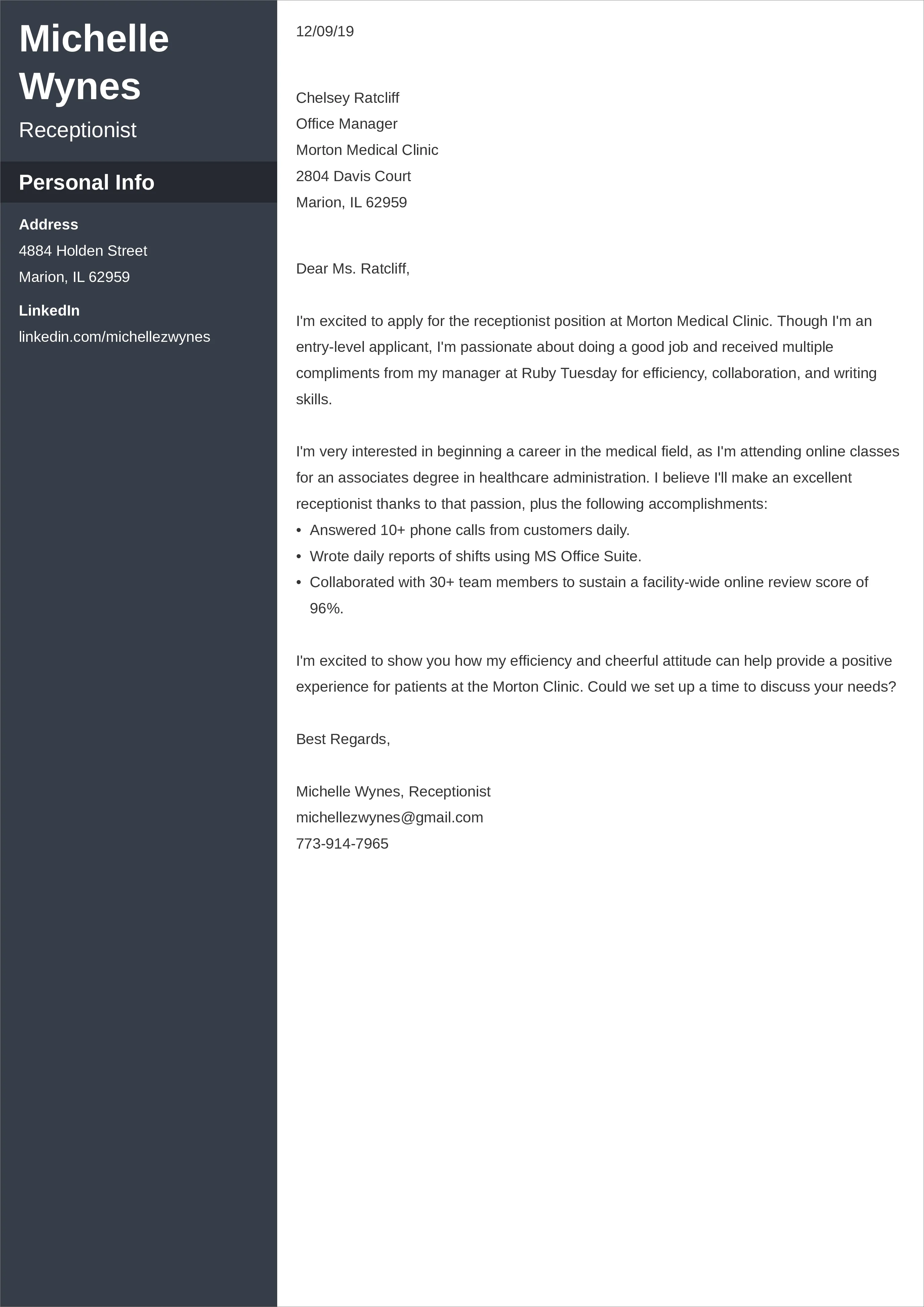
The ‘cover letter or not’ decision should be made after considering both the pros and cons. A cover letter provides a platform to tell your story, emphasize your interest, and demonstrate why you’re a good fit. However, writing a cover letter takes time and effort. If your resume is already strong and your skills align perfectly with the job, the cover letter might not add significant value. Also, a poorly written cover letter can damage your chances of getting an interview. The decision should depend on the specific job requirements, the company culture, and your personal career goals. This ensures that you’re making the most of your time and efforts.
The Benefits of Including a Cover Letter
The benefits of a cover letter are many, but they depend on how effectively you use it. A cover letter allows you to explain your career aspirations and show your enthusiasm for the company and position. It’s an opportunity to connect your skills and experience with the specific needs of the job, highlighting the most relevant aspects of your background. A well-written cover letter helps you to address any potential weaknesses or gaps in your application. It can also give you a unique chance to explain why you are a good fit for the job and company. A cover letter will make your application more memorable. By making your cover letter the best it can be, you greatly improve your chances of a positive outcome.
Potential Drawbacks of a Cover Letter
There are potential drawbacks to including a cover letter, particularly if it’s poorly written or poorly aligned with the job requirements. A generic, irrelevant cover letter can undermine your application, as it shows that you haven’t taken the time to tailor your application. A cover letter that contains errors or typos will make you appear unprofessional and careless. If the job posting doesn’t specifically request a cover letter, including one might be considered unnecessary, especially if you are applying to a large number of roles. Also, a long-winded cover letter can lose the hiring manager’s attention, so keeping it concise and impactful is key. Your ‘cover letter or not’ decision must weigh these aspects to ensure it works in your favor.
Cover Letter or Not? Seeking Professional Advice
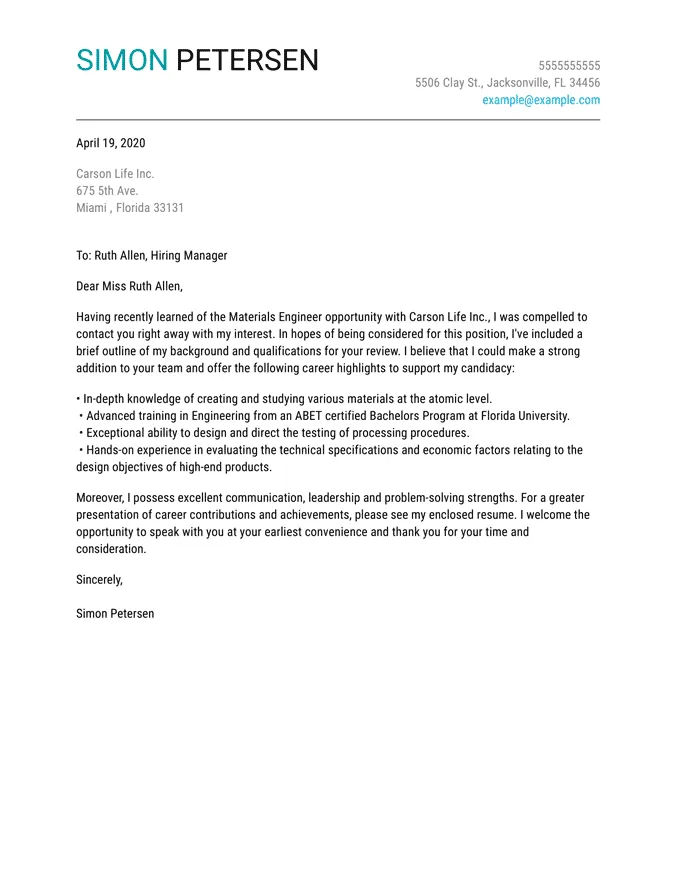
When in doubt, seek professional advice. Career counselors, resume writers, and HR professionals can offer valuable insights into whether to include a cover letter. They can review your resume and provide guidance on tailoring your application. They can also help you understand the specific expectations of your target industry and the companies you’re applying to. Getting feedback from experienced professionals will improve your chances of success. In any case, you can also ask friends, family members, or colleagues for feedback. Ensure that your cover letter is well-written and that your application is ready for submission.
In conclusion, deciding ‘cover letter or not’ is a strategic decision. There is no one-size-fits-all answer. Assess the job requirements, company culture, and industry standards. Consider the pros and cons. If you’re in doubt, seek professional advice. When deciding, your goal is to present yourself as the best candidate for the role, to set yourself apart from other applicants, and to increase your chances of landing an interview. The more you put into the application process, the more likely you are to succeed.
